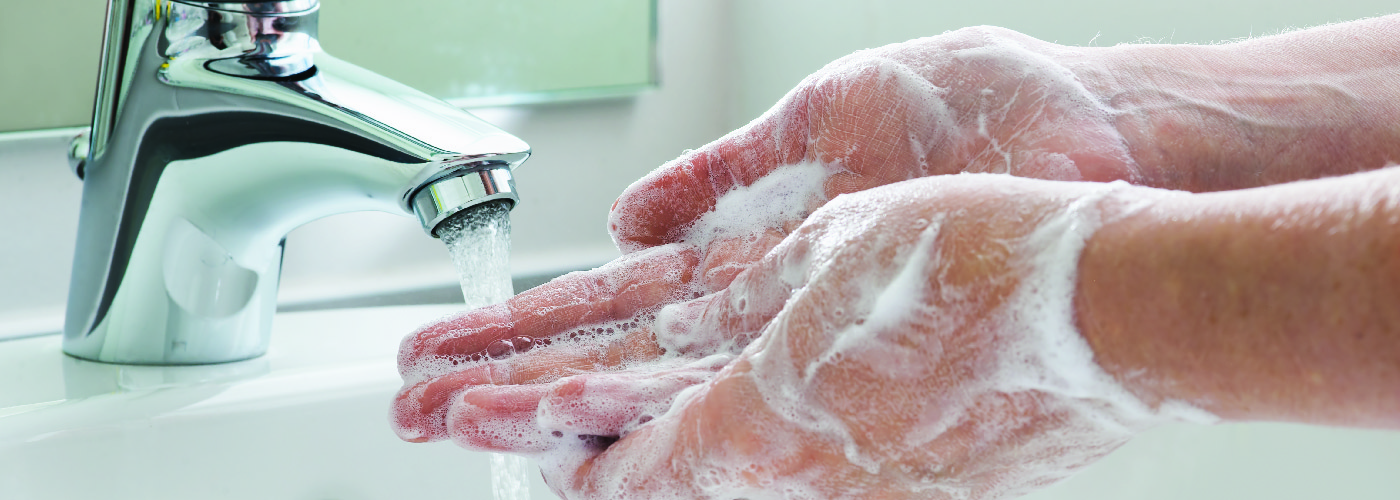Infection Prevention and Control in Congregate Living
On this page:
- Passive vs Active Screening
- Hand Hygiene
- Personal Protective Equipment and POC Risk Assessment
- Environmental Cleaning
- Antibiotic Resistant Micro-organisms
- IPAC Checklists
Passive vs Active Screening
The purpose of active and passive screening is to identify those who may be infectious to prevent potential spread of infection within the setting.
Passive screening is when individuals assess their own risk factors and symptoms, decide whether they may enter a facility. It involves reviewing instructions at the entrance that may be in the form of signs or posters with no verification of screening.
- Covid-19 screening passive screening tool (self-screening)
- Visitor Screening Poster
Active screening is when information is collected to determine whether an individual can enter a facility. It may be done on site in person with paper or at a screening kiosk, or it may be done remotely through telephone, email, or an app prior to entry. There is some form of attestation or confirmation of screening. This is normally only done when there is a new or emergency infectious disease situation at your facility or in your area.
Hand Hygiene
Hand hygiene is one of the most effective ways to prevent the spread of infections in the community and in congregate living settings. It can be performed by using alcohol-based hand rub of at least 70% or by using soap and water when hands are visibly soiled. Hand hygiene is an essential part of infection prevention and control, and it is the responsibility of ALL individuals to maintain a safe and healthy environment.Just Clean Your Hands (educational materials, promotional materials and audit tools from Public Health Ontario) Click to access PHOL resource
- Wash your hands poster (SWPH resource), How to hand wash (Video)
- Clean your hands poster (SWPH resource) How to hand rub (Video)
- How to wash your hands poster (SWPH resource)
- How to clean your hands poster (SWPH resource)
Point of Care Risk Assessment and Personal Protective Equipment
Point of Care Risk Assessment (PCRA) is regularly performed by staff for their own safety as well as the safety of their clients and others in congregate living settings. It involves reviewing work activities, evaluating possible risks, and applying appropriate control measures to minimize any risks.
PCRA is a component of Routine Practices (RP) and it is used with all clients at all times to reduce the risk of transmission of infections to and from the client. It must be completed before each interaction with a client and their environment.
- Point of Care Risk Assessment Poster
- Additional Precautions Signs
- Donning and doffing PPE: Instructional Cards
- Donning PPE: Video Resource
- Doffing PPE: Video Resource
- Personal Protective Equipment: Audit Tools
Environmental Cleaning
Environmental cleaning is the cleaning and disinfecting of an environment to reduce transmission of infections. It should be performed routinely and consistently to protect all individuals and to provide a safe and healthy environment. It is an important component to infection prevention and control in all types of setting.
Effective environmental cleaning involves selecting the appropriate product, implementing policies and procedures, and providing regular training to staff. Having a clear approach will help staff understand their responsibilities and allow for consistency when performing environmental cleaning.
- Public Health Ontario Environmental Cleaning (guidance document, online learning modules, audit tools)
- Hard-surface disinfectants and hand sanitizers (COVID-19): List of disinfectants with evidence for use against COVID-19
Antibiotic Resistant Microorganisms
Antibiotic Resistant Microorganisms (AROs) are viruses, bacteria or fungus that are resistant to the treatment that is normally used. An example of an ARO is MRSA or Methicillin-Resistant Staphylococcus Aureus Antibiotic resistance can happen naturally, however inappropriate or overuse of antibiotics in people, animals and plants is becoming a concern. Antibiotic resistant bacteria can spread easily among people and can be found in the community or in long-term care homes, retirement homes and congregate living settings. Strategies for prevention include hand hygiene, environmental cleaning and disinfection and avoiding the sharing of personal items among residents. It is important that health care providers prescribe antibiotics only when necessary—many viral illness will not be helped by antibiotics.
Questions about antibiotic resistant organisms and your congregate living setting can be directed to the IPAC Hub or to the Infectious Disease team member assigned to your facility.
IPAC Checklists
IPAC checklists can be used as part of planning, to help prevent and manage infectious disease outbreaks in congregate living settings (CLS). Facilities should complete IPAC checklists regularly to identify strengths and areas of improvements. These checklists do not replace the advice, directions and other recommendations from provincial ministries and your local public health units.











